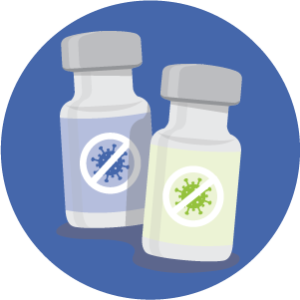
Making Sense of COVID-19 Vaccine Booster and Third Doses
First and foremost, it’s important to know that all the recommendations for COVID-19 vaccine booster and second doses have been analyzed and approved by the U.S. Food and Drug Administration (FDA), the Centers for Disease Control and Prevention’s (CDC) Advisory Committee on Immunization Practices, and the Western States Scientific Safety Review Workgroup. If that sounds like a lot of review, it is! All three of these groups are about making sure any vaccine recommendations are safe for us.
Now, that the information has been reviewed, how do we make sense of it all? We will break it down here the best we can. You can also checkout SRHD’s vaccination FAQ page for more information. To get advice specific to your situation and health history it’s always best to discuss options (and questions!) with your primary care provider.

At this time, CDC does not have a recommendation for immunocompromised people to receive both a booster shot and an additional dose. The current recommendation is for immunocompromised people to receive an additional dose 28-days after completing an mRNA COVID-19 vaccine series.

Three initial vaccine doses are needed to help immunocompromised people reach the immunity level that others can achieve with just two initial vaccine doses.
You may choose which COVID-19 vaccine you receive as a booster shot. Some people may prefer the vaccine type that they originally received, and others may prefer to get a different booster. CDC’s recommendations now allow for this type of mix and match dosing for booster shots.
